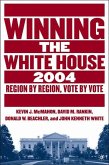An explanation of variations in the discourses and electoral success of 25 extreme right parties across 17 European political systems. The book shows how the European extreme right is mapped by the positions of parties and voters on two ideological dimensions, and how the match between these determines electoral success.
'The extreme right has played a significant role in European politics in the past. The most recent developments demonstrate that extreme rightist tendencies will have an impact on Europe in the foreseeable future also. Michael Bruter and Sarah Harrison's brilliant analysis of the extreme right's way of thinking is published exactly at the right moment.'
- Anton Pelinka, Professor of Nationalism Studies and Political Science, Central European University, Budapest
'This is a brilliant, comprehensive and lucid study of the European extreme right. The authors succeed in synthesizing the vast relevant literature in exciting ways which open new venues for academic research. Moreover, they perform an interdisciplinary and comparative, quantitative and qualitative discourse and text analysis which illustrates the intricate complexity of extreme right-wing national and transnational politics across a range of genres (e.g., policy papers, party programmes) in many to date uninvestigated - details. I am convinced that this book will become a benchmark for future theoretical and empirical research on the European radical right.
- Ruth Wodak, Distinguished Professor and Chair in Discourse Studies, Department of Linguistics and English Language, Lancaster University, UK
- Anton Pelinka, Professor of Nationalism Studies and Political Science, Central European University, Budapest
'This is a brilliant, comprehensive and lucid study of the European extreme right. The authors succeed in synthesizing the vast relevant literature in exciting ways which open new venues for academic research. Moreover, they perform an interdisciplinary and comparative, quantitative and qualitative discourse and text analysis which illustrates the intricate complexity of extreme right-wing national and transnational politics across a range of genres (e.g., policy papers, party programmes) in many to date uninvestigated - details. I am convinced that this book will become a benchmark for future theoretical and empirical research on the European radical right.
- Ruth Wodak, Distinguished Professor and Chair in Discourse Studies, Department of Linguistics and English Language, Lancaster University, UK








